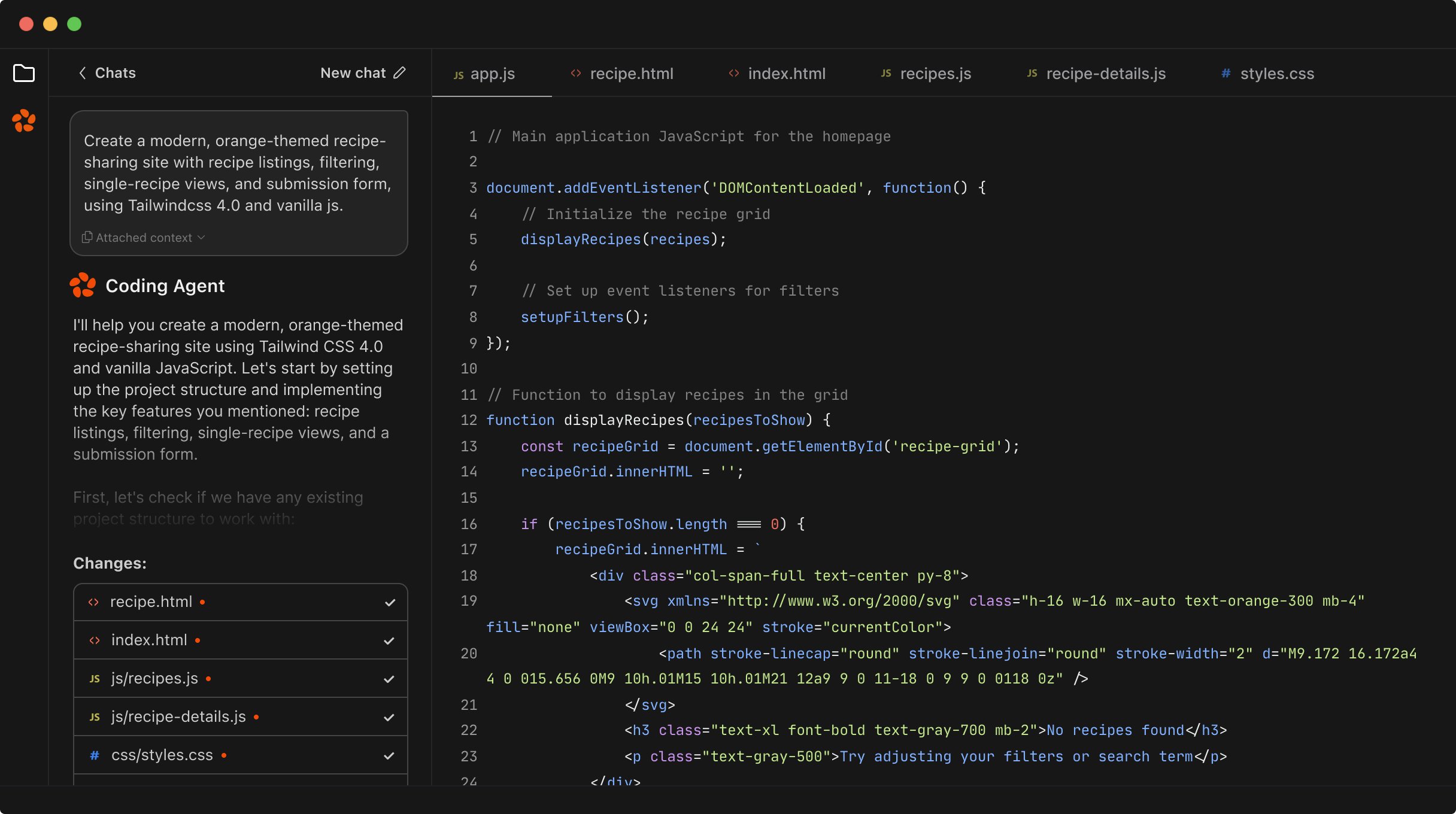Alibaba Group has announced ZeroSearch, a new AI technique that could reshape how large language models (LLMs) are trained to search for information. Revealed in May 2025, ZeroSearch eliminates the need for expensive commercial search APIs, offering huge savings and more control for developers. As the global AI race heats up, Alibaba’s new solution leverages simulated search instead of real web queries, and the company says it cuts training costs by up to 88 percent.
This breakthrough comes from Alibaba’s research into efficient reinforcement learning. ZeroSearch generates its own simulated search results, allowing AI systems to “learn to google” by training on LLM-generated responses rather than actual web data. With tech giants and startups hunting for ways to make AI more affordable and easier to train, ZeroSearch could shift strategies across the artificial intelligence industry.
What Is ZeroSearch?
ZeroSearch is a method developed by Alibaba that allows large language models to learn and improve information retrieval skills without communicating with commercial search engines during training. Instead of fetching results from the web, the model simulates the search process by generating its own documents and responses, designed to mimic what would be returned by an actual search engine.
This simulation approach is built around reinforcement learning, where the language model is rewarded for producing relevant information in response to queries. Initially, a lightweight supervised fine-tuning step helps the LLM act as a retrieval module, generating both relevant and irrelevant mock search results. The process uses a “curriculum-based rollout strategy” that gradually exposes the model to lower-quality results – helping it get better at filtering good from bad information.
By leveraging the LLM’s own world knowledge acquired during pretraining, ZeroSearch replaces unpredictable and costly search engine results with a controlled simulation. Alibaba’s researchers explain that, at its core, the key difference between a real search engine and this technique is mainly the stylistic nature of results, not the underlying quality of information.
This novel approach is part of a trend toward AI systems gaining more independence, potentially removing the need to rely on APIs from major platforms like Google or Bing for training smarter assistants.
How ZeroSearch Reduces AI Training Costs
The most striking benefit of ZeroSearch lies in slashing the costs of training sophisticated question-answering or search-enabled AI systems. Where previous methods called for thousands or even millions of live API requests to commercial search platforms, ZeroSearch replaces those pricey calls with in-house simulation.
- By relying on simulated search results, companies avoid API usage fees.
- Training overhead drops significantly due to efficient use of GPU compute and elimination of third-party charges.
Cost breakdowns from Alibaba’s paper highlight the remarkable savings. Running about 64,000 search queries with Google Search using SerpAPI costs nearly $587, while a comparable session with ZeroSearch on a 14B-parameter LLM requires under $71 – an almost 90% reduction.
With reinforcement learning disciplines that demand frequent rollouts and high-volume querying for effective learning, the affordability advantage compounds quickly at larger scales. For many organizations, this could be the difference between experimenting with advanced AI or being shut out by operational costs.
In addition, this approach removes cost unpredictability for developers. Once the hardware and training schedules are defined, the budget is locked in, offering better planning and resource management for AI teams compared to fluctuating API prices.
Traditional AI Search Training vs ZeroSearch
Up until now, most LLMs that excelled at retrieving facts needed to train on real search engine results. This meant that AI models would submit questions to engines like Google, fetch the top results, and then learn from those documents. Each search generally incurred a fee, and developers were at the mercy of unpredictable content quality from the web.
Traditional approaches were expensive in two main ways: high API costs and the need to filter out noisy or irrelevant data returned by web searches. Process unpredictability also made repeatable research and development hard, as the online content constantly shifts and API terms or pricing can change without notice.
In contrast, ZeroSearch uses the LLM’s own capacity to simulate relevant (or even irrelevant) documents. It creates a consistent, controlled learning environment. What’s more, the curriculum strategy gradually makes the exercise harder, so the model doesn’t get “lazy” by always fetching great answers.
This makes ZeroSearch better suited for rapid, reproducible experiments. Researchers, startups, and enterprise developers no longer need to maintain expensive search engine API keys or worry about rate limits and restrictions imposed by third-party providers.
The shift toward simulated training marks a migration to a model where costs, relevancy, and reproducibility all improve at once.
How ZeroSearch Simulates Search Engines
The technical core of ZeroSearch is its simulation system. Instead of sending live queries to Google or Bing, a fine-tuned LLM is tasked with imagining what kinds of search results would appear for a given query.
This is done through several steps:
- The LLM undergoes supervised fine-tuning to transform into a retrieval module.
- During reinforcement learning, the simulation engine generates a mix of documents with declining quality over time, forcing the model to improve at sorting high-value information from less useful content.
- The reward mechanism encourages the LLM to maximize response relevance while mimicking real-world search results.
Alibaba’s researchers found the LLMs already have massive stores of general knowledge. When prompted with a query, models like Qwen or LLaMA can write documents similar to what a search engine might return – even covering off-page SEO patterns and common article types.
This synthetic data delivery, paired with curriculum learning, produces a flexible retrieval system. Models get better not by seeing the exact real content, but by challenging themselves in a self-contained “practice arena.”
The end result: a reinforcement learning engine that keeps getting better at fact-finding, without ever connecting to the outside internet for search.
Performance Compared to Google and Other Search Engines
Alibaba’s testing of ZeroSearch included cross-experiment benchmarks on seven question-answering datasets. The researchers compared the quality of results against standard approaches that rely on actual search engine APIs.
The numbers are impressive:
- A 7B-parameter ZeroSearch retrieval model matches Google Search in test scenarios.
- A 14B-parameter version even outperforms Google on some datasets.
These findings signal a major leap. The simulated system’s ability to challenge the dominance of the world’s largest search companies points to just how much world knowledge LLMs can already synthesize internally.
The edge goes beyond accuracy. With strict control over document style and diversity, ZeroSearch models are less influenced by SEO spam and shifting ranking strategies common on public search engines, often presenting more consistent and focused responses to questions.
Early literature suggests that for many enterprise and research scenarios – especially in areas where up-to-date data isn’t critical – ZeroSearch rivals or beats conventional search retrievers.
Cost Analysis: ZeroSearch vs API-Based Search Training
The cost savings with ZeroSearch are not just theoretical. Alibaba’s team broke down real-world spending to illustrate the difference in price between simulated and traditional API-based training.
| Training Method | Queries | Cost |
|---|---|---|
| Google Search via SerpAPI | 64,000 | $586.70 |
| ZeroSearch (14B LLM, 4x A100 GPUs) | 64,000 | $70.80 |
This 88% reduction could be game-changing for AI labs, especially as models grow and runtimes stretch into millions of queries. The table above highlights the operational advantage – once the compute power is purchased or leased, ZeroSearch’s cost does not grow with each additional query.
For startups and small developers, the ability to forecast spending and avoid sudden price increases is a rare bonus. It also sidesteps shifting pricing models from web API providers, which can sometimes increase costs without notice.
Ultimately, ZeroSearch rewrites the math for AI retrieval training – and could become the default approach for organizations with limited resources or a desire for cost transparency.
Impact on AI Companies and Startups
The AI boom has created a rush of startups hoping to build the next breakthrough assistant, search bot, or question-answering platform. But until now, the high cost of search API calls put many out of reach – especially for small teams or those in lower-income markets.
With ZeroSearch, these barriers are dramatically lowered. Training powerful models no longer requires a massive budget for API usage, leveling the playing field between major tech firms and nimble independents.
Teams can now run nearly unlimited retrieval experiments in-house. Startups can operate proof-of-concept projects or even conduct full-scale training without advance contracts with Google, Bing, or other platforms.
- Lowered financial entry-point for innovation
- Greater independence and data privacy
- Predictable training schedules
In practical terms, this means an explosion of new talent and techniques could emerge, fueling further progress in natural language search and question answering – as more people can afford to compete.
Some experts predict ZeroSearch will shape the next generation of enterprise knowledge tools and digital assistants, empowering both new entrants and established names to explore advanced, search-aware AI applications.
Control and Flexibility in AI Model Training
One of the major pain points in AI retrieval training is the unpredictability of web results. Search engines are dynamic; the same query might fetch wildly different content day-to-day, making rigorous testing and reproducibility hard.
ZeroSearch solves this problem by giving developers direct control over every step in the retrieval process. The simulation setup means every returned document is generated according to transparent, customizable guidelines.
This flexibility lets research teams:
- Test responses on identical data for strict benchmarking
- Filter out content types not relevant to a specific domain
- Precisely manage exposure to misinformation or unverified content
For regulated industries or academic research, this is a vital advantage. A laboratory or business can define exactly what its models “see” in training, reducing risk and aligning the output with compliance needs.
The model’s curriculum can also be tuned to gradually increase challenge, training it for harder, more ambiguous queries as performance improves. This simulated difficulty ramp mimics real-world learning and boosts the quality of the final AI assistant.
ZeroSearch’s Compatibility with Major LLMs
ZeroSearch isn’t tied to any single model or company. In testing, the technique worked across multiple large language model families – showcasing its flexibility.
- Demonstrated with Qwen-2.5 (Alibaba’s own LLM family)
- Tested on Meta’s LLaMA-3.2
- Effective with both base and instruction-tuned variants
This means organizations do not have to pick one ecosystem to use ZeroSearch. As open-source models proliferate, research teams can integrate the protocol with emerging LLMs, tailoring the setup to their hardware and language needs.
Compatibility decisions factor heavily in long-term project maintenance. With ZeroSearch, updating the underlying LLM does not break the retrieval simulation framework – future proofing research investments.
Also Read
Square Enix Symbiogenesis Expands on Sony Soneium Blockchain
Code and documentation are made available for both Qwen and LLaMA-based ZeroSearch modules, making cross-vendor deployment a practical reality from day one.
Open Sourcing ZeroSearch: Code and Datasets
Alibaba’s team has made ZeroSearch available on open platforms, inviting adoption and improvement from the global AI community.
- Code is published on GitHub.
- Datasets and pretrained models are hosted at Hugging Face.
This move enables researchers, engineers, and startups to experiment with ZeroSearch without building everything from scratch. By sharing model weights, training scripts, and evaluated datasets, Alibaba aims to accelerate the adoption and evolution of the simulation approach.
Transparency and open access tend to spark new variations, so it’s likely that we’ll see rapid adaptation of ZeroSearch for different languages, domains, and research fronts.
Also Read
Last Chance to Exhibit at TechCrunch AI Sessions at Berkeley
The company’s public documentation includes architecture details, instructions for setup, and links to academic resources. Community participation will likely bring new efficiency gains and use-case explorations in coming months.
Implications for the AI Industry and Search Market
ZeroSearch signals a shakeup in the economics of AI and the business models of traditional search platforms. If more labs and startups simulate their search training rather than paying for access, demand for commercial search APIs could rapidly decline.
This could lessen the hold that major companies like Google, Microsoft, and Baidu have over the early phases of intelligent assistant development. New search techniques and AI applications might evolve away from centralized models, impacting everything from licensing deals to cloud compute revenue streams.
- Cost-based barriers are lowered for all players
- Innovation pace may increase rapidly as more experiments become financially feasible
- Market for third-party search APIs could shrink
Beyond economics, there are implications for algorithm transparency. With more open-source, simulated search, the AI field gains greater clarity into how models train and what biases might arise in their learning process.
Also Read
Florida Encryption Backdoor Bill for Social Media Fails to Pass
The question of how much “dependence” the AI industry has on traditional search just got far more interesting given Alibaba’s public release.
The Role of Self-Simulation in Future AI Training
ZeroSearch highlights a broader movement toward AI self-sufficiency. When language models use their internalized world knowledge to generate training scenarios, they become less reliant on real-time outside sources.
Self-simulation can accelerate progress:
- Models can continually “practice” without risking data leaks or privacy breaches
- Training can run offline, opening new options in constrained environments or for air-gapped systems
- New curricula can be crafted to test edge cases or manage unique types of reasoning
For safety researchers, this is especially appealing. Self-simulated environments can tightly control the exposure of language models to problematic content, reducing risk of model “drift” or accidental learning of undesirable behavior.
Also Read
Apple’s New Chips Target Smart Glasses, Macs, and AI Hardware
It is likely that the trend toward simulated, self-play, or reinforcement-based learning – already popular in robotics and games – will become standard as models move toward autonomous problem-solving across every field.
ZeroSearch’s success hints that future breakthroughs in medical, legal, and scientific AI may increasingly be sparked by simulated learning over costly empirical data collection.
Challenges and Limitations of ZeroSearch
While ZeroSearch offers significant improvements, it is not without challenges. A simulated search can only be as good as the language model used to generate it, and risks exist if the simulation misses critical real-world context or emerging facts.
Potential drawbacks include:
- Missing the very latest data updates that only live search can capture
- Risk that the LLM “inventing” training documents introduces unseen biases
- Possible overfitting to the model’s own knowledge base, limiting discovery of out-of-domain knowledge
For applications that require up-to-the-minute news or rely on rapidly-shifting facts (such as finance, sports, or breaking news), simulated training may be less effective without some supplementation from real data.
Also Read
Widespread Timeline Issues Hit X as Users Report Outages
Additionally, researchers must remain vigilant for any “hallucination” or factual errors in simulated results. While the system is robust, manual checking and careful prompt design are still required for high-stakes use cases.
Despite these hurdles, the net benefit for most tasks outweighs the risks, especially when cost or privacy is paramount.
Expert Perspectives on ZeroSearch’s Breakthrough
Industry response to Alibaba’s ZeroSearch has been enthusiastic. Many AI experts see this as a “turning point” for affordable, scalable training of intelligent search systems.
“ZeroSearch is the clearest example yet of how powerful LLMs can simulate complex retrieval tasks without outside help. This democratizes retrieval research,” notes Dr. Olivia Zhang, an independent AI scientist.
Startups and researchers, previously limited by budget or access to search engines, now find themselves with far more creative freedom. Alibaba’s open approach further excites those hoping to build on this method in specialized domains or languages.
Also Read
Zen Agents by Zencoder: Team-Based AI Tools Transform Software Development
There are, however, calls for careful benchmarking to track any subtle changes in system behavior when using simulated versus live search engine data. As more results are published and community contributions arrive, best practices will sharpen further.
The consensus remains: ZeroSearch stands as a milestone that could influence not only how AI retrieves information, but also how entire fields of generative intelligence are developed in years to come.









